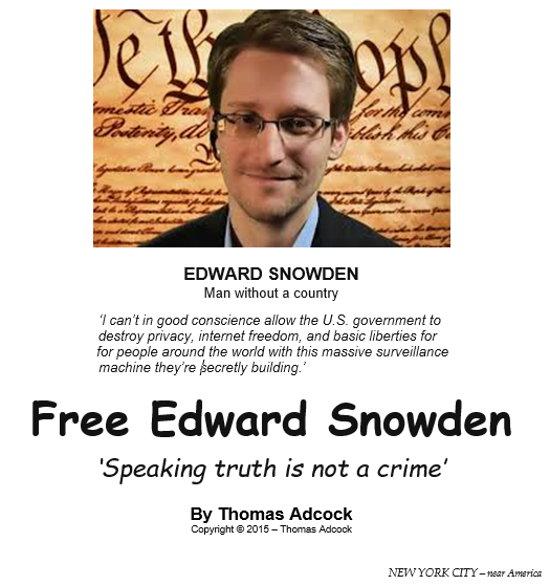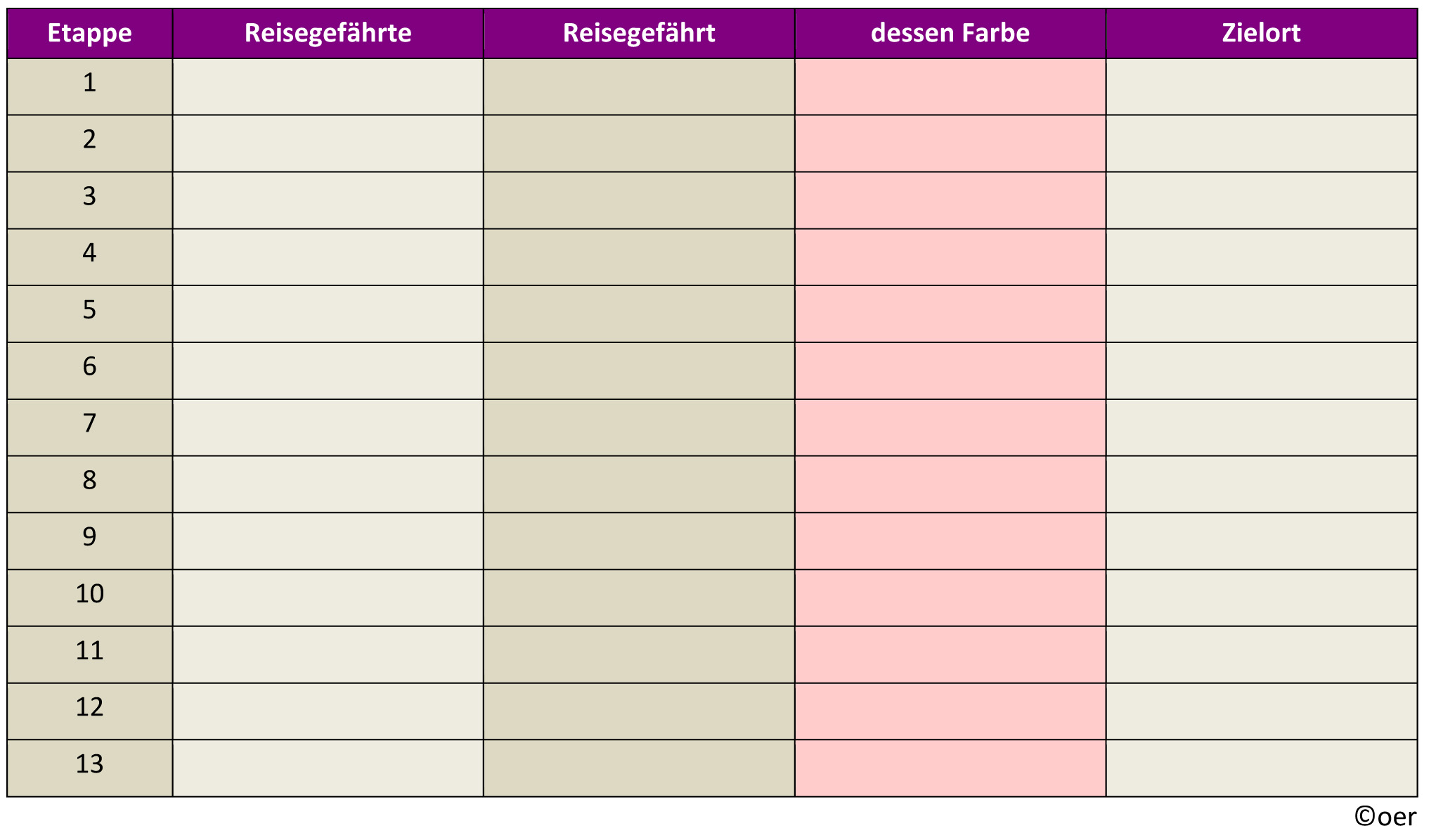As I write, a deputation of White House operatives is secretly en route to the Moscow apartment where Edward Snowden has lived in forced exile since June of 2013, when he exposed gross illegality by the National Security Agency of the United States and was immediately set upon by Pentagon persecutors—the sort of folks who built American torture chambers in Afghanistan and Iraq, where homicides were not unknown. Apparatchiks for the Obama administration will make Mr. Snowden an offer they believe he cannot refuse:
Sit tight here in Russia for a while—OK, Eddie boy? Keep your head down, don’t squawk. Wait ‘til after the November 2016. Wouldn’t want to rile the yahoos, right? Right. So, when the campaign blathering blows over next year—that’s when the boss can show his merciful heart. Yessiree, he’ll restore your American passport, and grant a presidential pardon for your violations of the Espionage Act of 1917. You’ll be free!
Trust us, Eddie boy. We have seen the light. Thanks to that federal court decision, every terrible thing you said about the N.S.A. snooping into everybody’s private business—well, we guess it’s true. Or as the judge said, what the damn N.S.A.’s doing is “unprecedented” and “unwarranted” and “illegal.”
Or so it would go in the gruff logic of what I propose a reasonable bargain between the U.S. government and one of its subjects: justice for Mr. Snowden on the one hand; on the other, stalling him in Vladimir Putin’s Russia for another year and a half, thus allowing the hicks and hacks of Congress who proclaimed Mr. Snowden a dirty rotten turncoat worthy of execution to save a bit of face. Deference to cheap louts, undeserved as it may be, seems a small price to pay for the liberation of Edward Snowden.
But at this writing, such a pragmatic arrangement may only be imagined. If imagination does not bloom to reality, I, for one, shall be sorely disappointed in my president.
In this tetchy era of Republican Tea Partyism, it may be impolitic for Barack Obama to congratulate Mr. Snowden for his jurisprudential prescience; or maybe the president doesn’t heave it in his heart to do so. No matter, I am willing to forget, if not forgive; I have the federal court on my side, after all. Wouldn’t want to rile the yahoos.
Neither has the president acknowledged the hardships of exile. Several nations more to Mr. Snowden’s expatriate preference were willing to shelter him from the hangman two years ago; a sealed indictment in the matter of U.S. v. Edward J. Snowden, the exiled defendant is charged with espionage, a capital crime. Potential host nations, however, were cowed into rejecting Mr. Snowden’s pleas for sanctuary by extortionists from the U.S. State Department.
In the lengthy decision agreed on May 7th by a unanimous panel of jurists for the 2nd Circuit U.S. Court of Appeals in Manhattan, Judge Gerald E. Lynch wrote scathingly of a “staggering” amount of telephone, internet, and social media communications amassed from ordinary citizens by the N.S.A.—contrary to strenuous denials of warrantless domestic spying by the administrations of Presidents Obama and George W. Bush.
“Such expansive development of government repositories of formerly private records would be an unprecedented contraction of the privacy expectations of all Americans,” Judge Lynch wrote for the court, in the matter of American Civil Liberties Union v. Clapper, et al., “We would expect that such a momentous decision to be preceded by substantial debate, and expressed in unmistakable language. There is no evidence of such a debate.”
Instead, we were told lies from on high. Presidents and congressional leaders persistently claimed that N.S.A. records constituted “metadata”—a harmless census of the number of communications, strictly limited to that emanating from the U.S. to foreign lands, and most definitely not the content of said communications; the government was certainly not in the business of eavesdropping on personal correspondence, the liars lied.
 By way of dissident media, Americans have learned that “metadata” is Orwellian doublespeak for dossiers. And that dossiers are of little use in the business of safeguarding America from terrorist attack, though of considerable cash value to corporate merchandisers—and of titillating value to N.S.A. computer geeks passing the long hours of snoop duty by sharing news of sexual peccadilloes they stumble across.
By way of dissident media, Americans have learned that “metadata” is Orwellian doublespeak for dossiers. And that dossiers are of little use in the business of safeguarding America from terrorist attack, though of considerable cash value to corporate merchandisers—and of titillating value to N.S.A. computer geeks passing the long hours of snoop duty by sharing news of sexual peccadilloes they stumble across.
 The English novelist and social critic George Orwell (né Eric Arthur Blair, 1903-1950) is best known for creating the fearsome, disembodied “Big Brother” as a personification of N.S.A.-style surveillance. He once observed, “During times of universal deceit, telling the truth becomes a revolutionary act.”
The English novelist and social critic George Orwell (né Eric Arthur Blair, 1903-1950) is best known for creating the fearsome, disembodied “Big Brother” as a personification of N.S.A.-style surveillance. He once observed, “During times of universal deceit, telling the truth becomes a revolutionary act.”
Revolutionists, as history informs, are not necessarily popular. Case in point, a 32-year-old soft-spoken North Carolina-born nerd and self-identified conservative who worked—pre-exile—as a systems administrator for the Central Intelligence Agency and as an infrastructure analyst for the N.S.A. Two years ago, nearly to this very day, Edward Joseph Snowden traded the career security of Big Brotherism for the perils of truth telling. In a German televised interview, he explained himself and the American situation thusly:
Every time you pick up a phone, dial a number, write an email, travel on a bus carrying a cell phone, swipe a [credit] card somewhere, you leave a trace. And the [U.S.] government has decided that it’s a good idea to collect it all—everything—even if you’ve never been suspected of a crime.
It was the creeping realization that no one else was going to [reveal] this that led to my decision [to reveal classified documents]. …The public had a right to know that which the government is doing in its name.
Meanwhile in America—in light of the damning federal court decision—it occurs to no one of consequence within the incestuous world of Washington politics and media to demand the obvious: Free Edward Snowden! By its silence, the ruling class duopoly of establishment pols and obedient reporters insist on criminalizing the messenger of shame they respectively created and countenanced.
As Mr. Snowden has said in his defense, mostly in foreign interviews, “Speaking truth is not a crime.”
The god of Irony has cast a spell. The American ruling class, of late including even Republican Tea Party cretins of the lower house of Congress, concede a shameful truth laid bare by Edward Snowden: Until and unless Washington defies its corporate handlers with true anti-Big Brother legislation, the American citizenry will dwell in a modern-day version of the Panopticon—a rather creepy name attached to an eighteenth century penal concept.
With cells fanning out from a tall, rounded prison block, a single watchman operating from a small central booth at the base of the Panopticon atrium could observe inmates at all times—without the inmates knowing they were under surveillance. Invented by the English philosopher-jurist Jeremy Bentham, it was a design never realized in physical construction. Poor Mr. Bentham went to his grave in 1832, thwarted in his efforts to create what he envisioned as a “National Penitentiary” for the United Kingdom.
Comes now the U.S. National Security Agency’s “Utah Data Center,” the mother ship of militarized cyberspace surveillance built in the usefully fearsome wake of al-Qaeda’s devastating attack on New York and Washington on September, 11th, 2001. The center is capable of storing private telephone and internet conversations by the kilobyte, megabyte, gigabyte, terabyte, and petabyte; perhaps one day soon the yottabyte. Surely no eavesdropping goes on in there. Out here, we didn’t even know we were being watched, until a certain 32-year-old nerd spilled the beans.
As I wrote in this space at the time of Mr. Snowden’s civil disobedience:
At one million square feet (9,290,304 square metres), the Utah facility has five times more floor space than the U.S. Capitol building in Washington. …[C]onstruction costs to date total $2 billion (€1.5 billion), with estimated annual electrical generation costs for its immense computers and servers of $40 million (€30.1 million). We are told that it is crucial to the life and limb of the republic that the N.S.A. collect “metadata” as a precaution against traitors in our midst. And never mind [that] the N.S.A. failed to pick up communications in advance of the al-Qaeda bomb attack on New York, in 1993, as well as 9/11 itself; bombings of the U.S. embassies in East Africa in 1998; the suicide attack on the USS Cole in Yemen in October 2000; the attempted downing of a Paris-to-Detroit commercial flight by Richard “the shoe bomber” Reid in 2001; Faisal Shahzad’s plot to blow up Times Square with car bombs on May Day 2010; and the Tsarnaev brothers’ pipe bombs at the [2013] Boston Marathon.
In his newly published exposé, “They Know Everything About You,” dissident journalist Robert Scheer makes the case that the N.S.A.‘s purported purpose with the Utah center—protecting Americans from al-Qaeda and its offspring—is perhaps beside the point. To be sure, the monumental failures of the center’s nonstop cyberspace sweep gives credence to the author’s premise; the center’s dependence on hush-hush coöperation with telephone and internet-driven marketing firms raises his rightful suspicions. Mr. Scheer documents a larger purpose: enuring the public to round-the-clock government observation as normal state vigilance, and providing corporations with demographic metadata with which they can best persuade us to buy, buy, and buy some more.
From the forward to “They Know Everything”:
The revelation that the government has access to a vast trove of personal online data demonstrates that we aleady live in a surveillance society. But the erosion of privacy rights extends far beyond big government. Intelligence agencies such as the N.S.A. and C.I.A. are using Silicon Valley corporate partners as their data spies. Seemingly progressive tech companies are joining forces with snooping government agencies to create a brave new world of wired tyranny.
Life in the digital age poses an unprecedented challenge to our constitutional liberties, which guarantee a wall of privacy between the individual and the government. The basic assumption of democracy requires the ability of the individual to experiment with ideas and associations within a protected zone, as secured by the Constitution. The unobserved moment embodies the most basic of human rights, yet is being squandered in the name of national security and consumer convenience.
*
 “As long as we are watched twenty-four hours a day, we cannot use the word ‘liberty,’” wrote the left-wing journalist Chris Hedges in a May 10 essay for Truthdig, a Los Angeles-based online magazine. “This is the relationship of a master and a slave. Any prisoner understands this. …Freedom demands the destruction of the security and surveillance organs…I do not have quick and simple suggestions for how this is to be accomplished. But I know it must.”
“As long as we are watched twenty-four hours a day, we cannot use the word ‘liberty,’” wrote the left-wing journalist Chris Hedges in a May 10 essay for Truthdig, a Los Angeles-based online magazine. “This is the relationship of a master and a slave. Any prisoner understands this. …Freedom demands the destruction of the security and surveillance organs…I do not have quick and simple suggestions for how this is to be accomplished. But I know it must.”
As mentioned, even the crazy caucus within the U.S. House of Representatives—the ultra-partisan tail that wags the marginally more sentient dog—seems to agree with Mr. Hedges. On May 13, the Republican Tea Party-dominated House voted overwhelmingly to “reform” the illegal provision of national security law, as determined by the U.S. Court of Appeals—namely Section 215 of the “USA Patriot Act,” which gave rise to the Utah dragnet.
In the Senate, likewise dominated by Teapublicans, opinion is divided. Some would sign off on the House proposal, others want to reauthorize Section 215 without a speck of change—full steam ahead, and damn that pesky federal court.
The House and Senate must reach consensus on a unified bill, sure to be heavily compromised. They have until June 1, when Section 215 expires. What remains of privacy rights hangs in the balance.
Smart money, according to Washington sharpies, is best wagered on some manner of “reform.” But proposed changes to the existing (illegal) standard are modest; once diced and sliced, any unified bill will give hollow victory for the righteous—despite corporate media already at work declaring the “vindication” of Edward Snowden.
But even if Section 215 were abolished, or at least crippled, it is doubtful that Washington would abandon a facility as overwhelming as the Utah Data Center. And still, the Foreign Intelligence Surveillance Act of 1978 will remain effective—complete with “FISA Court” proceedings by which government lawyers, exclusively, may present secret conjecture about certain individuals being dirty rotten traitors whose every mote and hair must be made visible to Big Brother.
—And still, the matter of Mr. Snowden’s exile.
With absolutely no one in Washington advocating for the liberation he has earned, Mr. Snowden continues life in the limbo of Vladimir Putin’s iffy good graces. He is unable to move about freely due to the stubbornly spiteful political leadership of his own country: to a man and woman, Lilliputians incapable of demanding freedom for a man who demonstrates a sense of patriotism greater than that of his own wellbeing.
In February of 2014, an interview with Edward Snowden aired by the German television network ARD was blacked out by U.S. media—voluntarily, so we are asked to believe. In the interview, Mr. Snowden referenced death threats reportedly made against him by U.S. military officials who deem him traitorous.
“I would love to put a bullet in his head,” said an unnamed Pentagon official, according to article published in BuzzFeed, the online magazine based in New York.
A U.S. Army intelligence officer went further, offering BuzzFeed a scenario for potential assassination: “[We could] end it very quickly. Just casually walking on the streets of Moscow, [Snowden] coming back from buying his groceries. …Going back to his flat, and he is casually poked by a passerby. He thinks nothing of it at the time [then] starts to feel a little woozy, and thinks it’s a parasite from the local water. He goes home very innocently, and the next thing you know he dies in the shower.”
Mr. Snowden also referenced a March 2013 hearing before the Senate Intelligence Committee, responsible for congressional oversight of the N.S.A. At that hearing, a flat-out lie told by N.S.A. Director James E. Clapper Jr. was the final straw as Mr. Snowden carefully considered blowing a whistle on what was eventually determined to be unlawful. To Senator Ron Wyden’s question—“Does the N.S.A. collect any type of data at all on millions or hundreds of millions of Americans?”—Mr. Clapper responded, “No sir, not wittingly.”
James Clapper is hardly the first federal official to tell a whopper. Nor is he first to avoid twelve months’ imprisonment for lying to Congress, a felony punishable by twelve months’ incarceration.
Former Secretary of State Colin Luther Powell was one of many in the administration of ex-President George W. Bush to tell flat-out lies about Iraq’s terrorist threat in the run-up to the American invasion and occupation of that country in March 2003; as a result of the U.S. military’s failure there—failure to conquer the oil fields as a directive of political perfidy—today’s Iraq is increasingly controlled by nihilistic thugs of the so-called “Islamic State.”
As the world saw in television newscasts from 2003, Mr. Powell sought the blessings of the United Nations in his marquee speech before the General Assembly. His topic: Iraq’s (non-existent) “weapons of mass destruction.” Highlighting Mr. Powell’s address was the prop he brought along for the duplicitous occasion: a mysterious vial, which he intimated was anthrax poison just in from Baghdad. Be afraid, be very afraid.
In September 2002, when Condoleezza Rice was the president’s national security advisor, she appeared on television to parrot her boss’s false claims about Iraq’s hidden cache of aluminum tubes, designed for uranium enrichment—the so-called “smoking gun” of the late Saddam Hussein’s mad mischief. She implied that catastrophe awaited the world if the U.S. failed to invade Iraq, by declaring, “We don’t want a smoking gun to become a mushroom cloud.” Be afraid, etc.
Lies told by these people—along with those of fellow gang members in service to Mr. Bush and his vice president, the vile Richard B. Cheney—led the U.S. and its oil-grubbing European allies to a protracted war costing the lives of nearly five thousand Americans and, at minimum, one hundred thousand Iraqi civilians. From the time of Thucydides (460 B.C.-395 B.C.), historians have seen casus belli built on political fabrication as traitorous conduct; indeed, the most traitorous; indeed, respectable traitors led us to war.
And yet—Mr. Powell is highly regarded as an elder statesman; Mr. Clapper still runs the N.S.A.; Ms. Rice is now provost of the prestigious Stanford University in California; Messrs. Bush and Cheney will never be prosecuted for the war crimes they enthusiastically commanded.
In America, we forgive murderous duplicity in high places. In America, a corporatized media is easily duped by government liars; even after the fact, they are reluctant to challenge the liars. In the context of America’s criminal invasion and occupation of Iraq, Paul Krugman of the New York Times explained these failings in his column of May 18:
We were lied into war…[Y]ou can understand why many political and media figures would prefer not to talk about any of this…[T]hey had their reasons for wanting a war, or, alternatively, allowed themselves to be intimidated into going along. For there was a definite climate of fear among politicians and pundits in 2002 and 2003, one in which criticizing the push for war looked very much like a career killer.
What the American ruling class cannot do, it would seem, is honor those who tell painful truths. Sometimes, as in the case of Martin Luther King Jr. (1929-1968), the prophet must die. In the case of Edward Snowden, the truth teller must become a man without a country.
In the ARD television interview unseen by my countrymen, Mr. Snowden poses an existential question: “If I am a traitor, who did I betray?”
—Thomas Adcock is America correspondent for CulturMag














